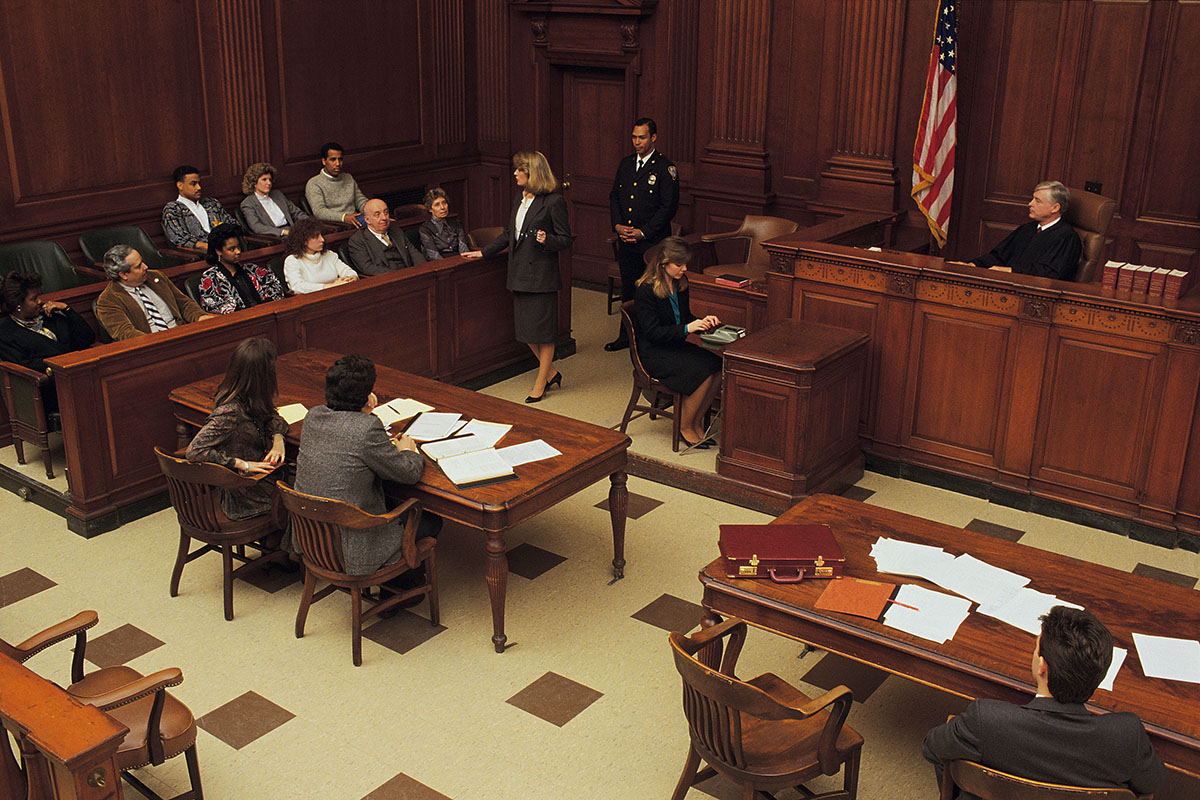Racial Bias Nullifies $9.6 Million Verdict

What is the consequence of an attorney selecting jurors on the basis of race? The Texas Supreme Court recently overturned a $9.6 million verdict from a Dallas County jury, finding that race was used as the basis for selecting jurors and excluding potential ones.
The facts in United Rental North America, Inc. v. Evans are tragic. In March 2015, United Rentals decided to move two pieces of equipment from its San Antonio to its Irving locations. One was a forklift with a boom arm measuring slightly over 8 feet tall, and the other was a boom lift measuring 10 feet tall. Due predominantly to language barriers, the 10-foot tall boom lift was improperly loaded onto an ordinary flatbed trailer rather than a step-deck trailer, which sits about 2 feet lower than an ordinary flatbed. On the ordinary flatbed, the total height of the boom lift was about 14 ½ feet, a height that qualifies as oversized and requires special permitting from the State.
While driving northbound on Interstate 35 from San Antonio to Irving, the driver of the flatbed truck with the boom lift approached a bridge that was under construction. Signs warned that the clearance was low and that loads over 13 ½ feet should exit before the overpass. The driver did not exit. The boom lift hit the overpass and two massive beams collapsed onto the highway. One of the beams crashed onto a pickup truck being driven southbound on the Interstate, killing the driver, Clark Davis. Davis’s mother and son brought a survival and wrongful death action against United Rentals, the trucking company and the truck driver. Only United Rentals remained as a defendant at the time of trial with the remaining defendants having settled or been dismissed.
During jury selection, Plaintiffs’ counsel stated that “the African-American female is the most favorable juror or this case”. The announced preference was consistent with the Plaintiffs’ peremptory strikes of four white men and one Hispanic man from the jury pool. The jury awarded Plaintiffs $9.3 million, allocating 30% of the responsibility, or the equivalent of $2.8 million, to United Rentals. United Rentals appealed the verdict, asking for a new trial, on the basis that Plaintiffs improperly selected and excluded potential jurors on the basis of race, thereby violating the longstanding United State Supreme Court holding in Batson.
Under Batson, a three step analysis of performed to determine whether peremptory juror strikes were purposefully discriminatory on the basis of race:
1. The opponent of the peremptory strike (United Rentals in this case) must make a prima facia case of racial discrimination;
2. The party who exercised the strike (Plaintiffs in this case) must then come forward with a race-neutral explanation for the strike; and
3. The court must determine whether the opponent of the peremptory strike has proved purposeful racial discrimination.
The United Rentals case is, in the words of the Texas Supreme Court, an “unusual one” in that racial preferences in jury selection are rarely explicitly stated. Typically, race-based selection is deduced from circumstantial evidence and statistical analysis. Here, however, when United Rentals used a peremptory strike on a black female, Plaintiffs’ counsel stated on the record that “We know from our focus groups that the African-American female is the most favorable juror for this case for whatever reason.” Plaintiffs peremptory strikes of four white men and one Hispanic men were consistent with this racial preference. Based on this explicit race-based motive, the Supreme Court dispensed with the lengthier three-step Batson analysis and ordered a new trial of the United Rentals case.
Although judges bear the ultimate responsibility for administering race-neutral proceedings, again in the words of the Court, “if our system of justice is ever to rid itself entirely of racial discrimination, lawyers and jury consultants must do their part as well.” The United Rentals case, while unusual in explicit basis voiced by Plaintiffs’ counsel on the record, reveals that the goal of race-neutral proceedings is not easily and has not yet been attained.
The attorneys in our Austin and Dallas are experienced in trying cases to juries and arbitrators. If you should have any questions regarding jury selection, Batson challenges, or the United Rentals case, please contact us at info@gstexlaw.com.
Legal Disclaimers
This blog is made available by Gerstle Snelson, LLP for educational purposes and to provide general information about the law, only. Neither this document nor the information contained in it is intended to constitute legal advice on any specific matter or of a general nature. Use of the blog does not create an attorney-client relationship with Gerstle Snelson, LLP where one does not already exist with the firm. This blog should not be used a substitute for competent legal advice from a licensed attorney.
©Gerstle Snelson, LLP 2023. All rights reserved. Any unauthorized reprint or use of this material is prohibited. No part of this blog may be reproduced or transmitted in any form or by any means, electronic or mechanical, including photocopying, recording, or by any information storage or retrieval system without the express written permission of Gerstle Snelson, LLP.

